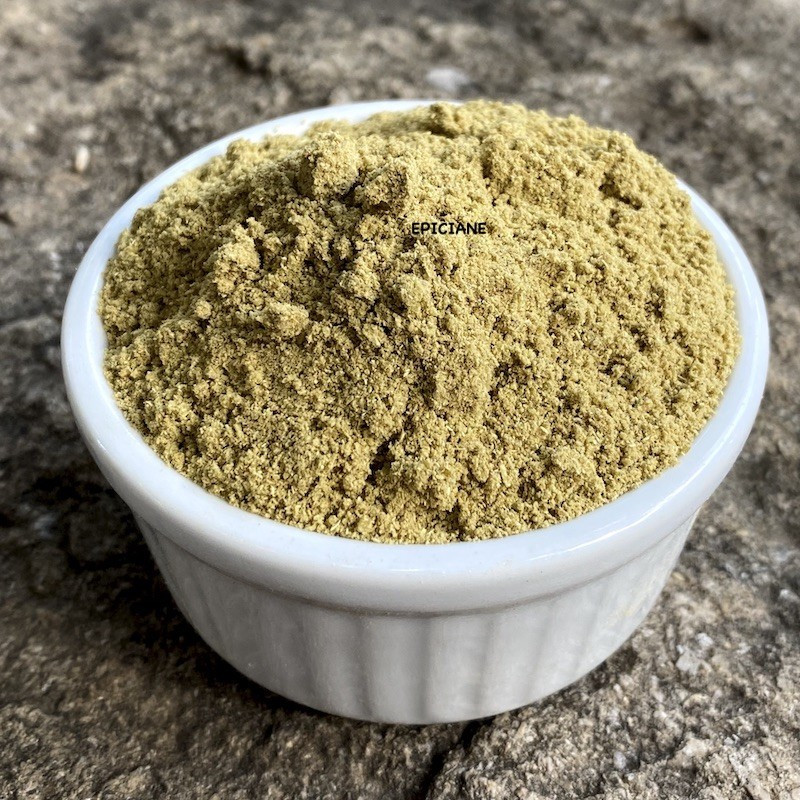
Reference: fenouilE


This ground fennel in fine powder has a fresh, aniseed aroma that evokes Provence.
It is ideal for flavoring sauces, fish (fillets, papillotes), and vegetables, especially if you want the fragrance of fennel without the seeds.
 Delivery
Delivery
Mondial Relay
 Returns
Returns
See conditions
 Payments
Payments
100% secure
Livré en sachet refermable
Uses in Cooking:
The taste of fennel brings to mind summer and the cicadas of Provence...!
The deliciously aniseed flavor of fennel seeds, here reduced to powder, enhances a variety of dishes. You can use it in fish cooked in papillotes or on quickly cooked fish fillets. It is also essential in mussels marinieres and fish sauces, where the seeds would not be suitable since the short cooking time wouldn’t allow them to soften and release their flavor.
However, in dishes that cook for a sufficient length of time, I prefer using whole fennel seeds, such as in squid (combined with tomatoes and garlic), in many vegetables like ratatouille, tomato coulis, stuffed vegetables, and even in certain meats like chicken. But you can certainly use the powdered fennel if you prefer to avoid the seeds!
The advantage of ground fennel is that it doesn’t require cooking, releasing its aroma in dishes almost instantly, unlike whole seeds, which need a longer cooking time to impart their flavor. Plus, for those concerned about texture, there are no small grains to bite into.
Who am I?
Origin: Egypt
Scientific name: Foeniculum vulgare
Common name: Common fennel
Fennel seeds are rich in anethole, which gives them their characteristic aroma, and they are also used in the production of anise-flavored spirits, such as pastis. They are also high in vitamins A, B, C, and E, as well as minerals.
In herbal teas, fennel seeds aid digestion, sharing this property with star anise and green anise.
The sweet fennel (the one offered here) is a large perennial herb native to the Mediterranean basin, belonging to the Apiaceae family (Umbelliferae), which has naturalized worldwide, mainly in Mediterranean climates. The leaves are finely divided and thread-like, and the plant typically flowers from July to October with umbels of white flowers. The entire plant has a strong, delightful anise scent.
A Little History:
Fennel was already used in ancient times by the Egyptians, and later by the Greeks and Romans. The plant is abundant on the island of Madeira, where it gave its name to the capital, Funchal.
It is still widely cultivated today for both its medicinal and culinary qualities.
Data sheet
Reference: fenouilE
Reference: 10203601
Reference: pondichery
Reference: coriandreE
Reference: Harissa
Reference: EPI2301003
Reference: 6L5609803
Reference: 20721302
Reference: 208037909
Reference: anisvertM
Reference: 00723801
Reference: 3N7137901
Reference: 00033929-0001
Reference: gingembreM
Reference: 1N6987004
Reference: 3N7201902
Reference: badianeE
Reference: 00036306-0001
Reference: 208037910

This ground fennel in fine powder has a fresh, aniseed aroma that evokes Provence.
It is ideal for flavoring sauces, fish (fillets, papillotes), and vegetables, especially if you want the fragrance of fennel without the seeds.